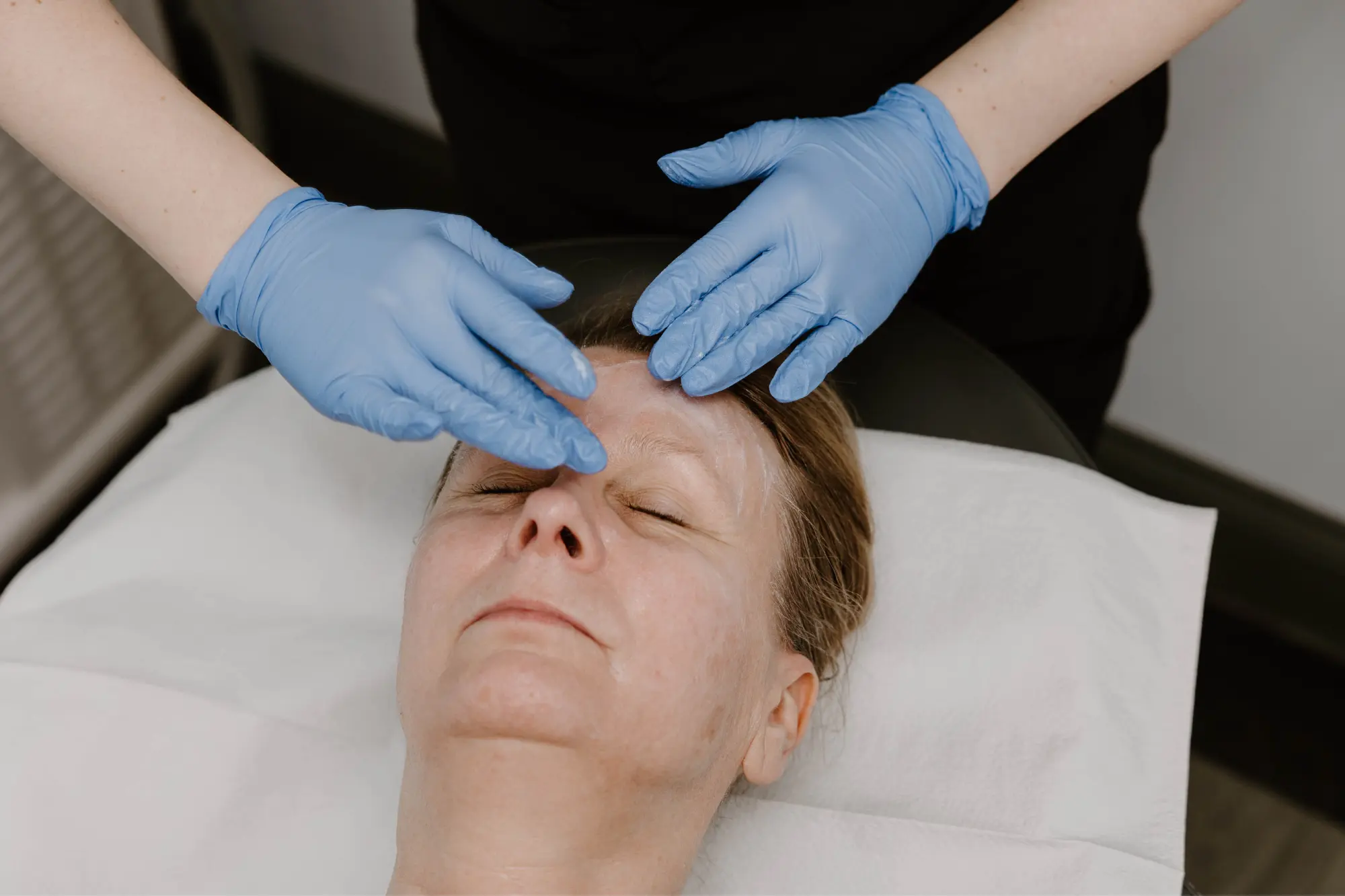
Brown Spots/Age Spots
- Home
- Brown Spots/Age Spots
Understanding Age Spots (Brown Spots): Causes, Prevention, and Treatment
What Are Age Spots (Brown Spots)?
Age spots, also known as brown spots, liver spots, or solar lentigines, are flat, dark patches that develop on the skin after years of sun exposure. They most commonly appear on the face, hands, shoulders, and arms, which receive the most UV exposure.
Although age spots are most common in adults over 50, younger individuals can develop brown spots as well, especially if they spend significant time outdoors without proper sun protection.
Signs and Symptoms of Age Spots (Brown Spots)
- Appear as flat, smooth patches darker than the surrounding skin
- Range from light brown to deep black
- Resemble large freckles and may appear in clusters
- Develop on sun-exposed areas like the hands, face, and shoulders
While age spots (brown spots) are harmless, they can sometimes resemble more serious skin conditions such as actinic keratoses (precancerous growths) or melanoma. If you notice any new or changing skin spots, a professional evaluation is recommended.
What Causes Age Spots (Brown Spots)?
Age spots develop when pigment-producing cells (melanocytes) produce excess melanin due to prolonged UV exposure. Over time, this leads to visible patches of darker pigmentation.
Although sun exposure is the main cause, some individuals may be genetically predisposed to developing brown spots.
Certain skin conditions can mimic age spots, including:
- Actinic keratoses – These precancerous growths appear as scaly, rough patches on sun-exposed areas. They may feel dry or sandpaper-like and should be evaluated by a dermatology-certified provider.
- Melanoma – A serious form of skin cancer that may start as a dark, irregularly shaped spot. It often has uneven borders, multiple colors, or rapid changes in size.
Because some brown spots could indicate underlying health concerns, it’s important to have them evaluated by a dermatology-certified provider.
How to Prevent and Treat Age Spots (Brown Spots)
Preventing Brown Spots
The best way to prevent age spots and brown spots is to limit sun exposure and protect your skin daily.
- Wear sunscreen (SPF 30+) every day, even on cloudy days
- Use protective clothing, such as hats and sunglasses, when outdoors
- Avoid tanning beds, which expose skin to harmful UV rays
- Incorporate skincare products with antioxidants and brightening agents to help maintain an even skin tone
Treatment Options for Age Spots (Brown Spots)
Although brown spots are harmless, many people reduce or remove them for cosmetic reasons. The most effective treatments include:
- Chemical Peels – This treatment exfoliates the top layers of skin, gradually fading brown spots by removing pigmented cells and promoting fresh, even-toned skin.
- Laser Treatments – Laser therapy targets excess melanin, breaking it down to lighten or remove age spots for a smoother complexion.
The right treatment depends on skin type, the severity of pigmentation, and personal skincare goals. A consultation with a dermatology-certified provider can help determine the best approach.
Frequently Asked Questions About Age Spots (Brown Spots)
Can Brown Spots Be a Sign of Skin Cancer?
While most brown spots are harmless, some dark patches may indicate skin cancer. Signs to watch for include:
- Irregular or blurred borders
- Uneven or patchy coloration
- Rapid changes in size or shape
If you notice any suspicious skin changes, schedule a professional evaluation.
Do Brown Spots Fade on Their Own?
No, brown spots typically do not fade without treatment. However, they can be significantly reduced with the right skincare routine or professional treatments.
Are Age Spots (Brown Spots) Genetic?
While genetics can increase the likelihood of developing brown spots, the primary cause is sun exposure over time. Even individuals with no family history of age spots can develop them without proper skin protection.
Can Brown Spots Be Prevented?
Yes, daily sun protection and a consistent skincare routine can help prevent new brown spots from forming. Wearing broad-spectrum sunscreen, avoiding prolonged sun exposure, and using protective clothing are the most effective preventive measures.
Schedule Your Consultation Today
If you are concerned about brown spots or age spots, contact Biltmore Dermatology to schedule a consultation at our Terre Haute or Vincennes office and begin your journey to clearer, more even-toned skin.